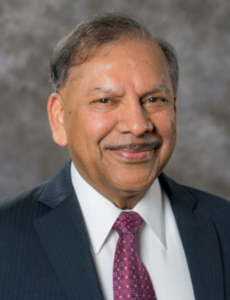Conferencistas Plenarios

Benjamín Castañeda
Developing health technologies for inclusive medical care: the
success case of asynchronous tele-ultrasound in Peru
Dr. Castañeda, a Full Professor at PUCP, holds a Doctorate in Electronic Engineering from the University of Rochester. With more than 15 years of expertise, he focuses on medical image processing, yielding over 40 publications and international accolades, including the SINACYT/CONCYTEC Academic Innovation Award. Notable for his work in tuberculosis diagnosis, he won the National Inventions Contest in 2013. Currently, he leads PUCP’s Biomedical Engineering Program and Research and Development Center in Medical Engineering. Additionally, he heads research at the Medical Imaging Laboratory and contributes to the National Committee on Health Informatics, showcasing his commitment to advancing healthcare technology in Peru.

Manuela Appendino
Biomedical engineers and female patients: what will inclusion
mean in the future?
Manuela Appendino is a biomedical engineer and bioethicist with 15 years of
experience, has collaborated closely with medical professionals in various capacities. She pioneered technical support for cardiac arrhythmia studies, contributed to the development of wearable devices for chronic diseases, and fostered post-market care networks in hospitals, evaluating technological performance alongside physicians. Through WeWomEngineers, she connected with 70+ Italian Women’s Associations, advocating for gender equality in technology. Manuela co-led efforts in creating the InclusioneDonna network, promoting gender certification practices in both private and public sectors. Her work in FemTech design and certification, highlighted by publications and conference presentations, underscores her commitment to advancing gender-aware technology in healthcare.

Shankar Krishnan
Strategies and Solutions for Risk Mitigation of Cyberattacks in Hospitals
Dr. Shankar Krishnan boasts over 35 years of diverse experience spanning biomedical engineering education, R&D, medical product development, and clinical engineering. He holds a Ph.D. from the University of Rhode Island and has held key positions at prestigious institutions such as Massachusetts General Hospital and Illinois and Miami universities. As a founding director and professor, he significantly contributed to the establishment of biomedical engineering departments at institutions like WIT in Boston and NTU in Singapore. With a track record of securing over USD 16 million in research grants, Dr. Krishnan’s expertise extends to biomedical signals processing, telemedicine, medical robotics, and cybersecurity. He has been recognized internationally through keynote lectures, publications, and leadership roles, including serving as President of IFMBE and Vice President of IUPESM. Dr. Krishnan’s accolades include the IFMBE Distinguished Service Award and membership in esteemed professional organizations like AIMBE and IEEE-EMBS.

Kang-Ping Lin
Innovative ECG measurement and Blood Pressure
Variation Analysis During Sleep
Kang-Ping Lin received his PhD in Biomedical Physics. He is the Distinguished Professor of Electrical Engineering and the Director of Technology Translation Center for Medical Device at Chung-Yuan Christian University (CYCU), Taiwan. He serves several positions including the President of Taiwanese Society of Molecular Imaging (2022~2025), the Editor-in-Chief of JMBE (2020~now), the Editor-in-Chief of Health & Technology Journal (2021~now), the Vice-President and the Chair of Awards Committee and Strategic Planning Committee in IFMBE (2022~2025), and one of Administrative Council members and one of members of Congress Coordinating Committee in IUPESM (2022~2025). He earned awards including the 2016 Chinese Institute of Engineers: Outstanding Engineering Professors Award, the 2017 ACCE (USA) Antonio Hernandez International Clinical Engineering Award, and the 2019 TSBME Wei Han Biomedical Engineering Service Award. His research interests include handheld medical devices, physiological signal processing, and medical image processing. In addition to his research work, he has long been involved in continuing education and training programs in clinical engineering.

Paulo Carvalho
NeuroSE: Evaluation of Modern Code Reviews Through
Intelligent Biometrics
Paulo de Carvalho is Full Professor at the University of Coimbra, co-founder of the Health Informatics Lab (LInC) dedicated to researching intelligent algorithms for
medical applications, particularly focusing on tele-medical management of chronic diseases. With interests spanning biosignal processing and trustworthy AI in medicine, LInC, boasting 7 PhD researchers and 25 PhD students, has secured over €6.5 million in competitive funding and published 250+ scientific papers. In addition to his academic roles, he has spearheaded various educational initiatives and held positions in research coordination. At the international level he coordinated the Working Group on eHealth and Health Informatics of the IFMBE between 2015 and 2023, and he coordinates the Digital Health Division of the IFMBE since its foundation in 2023. He is an Associate Editor of the IEEE Journal on Biomedical and Health Informatics.
